Far From the Madding Crowd (1967)
“A woman like you does more damage than she can conceivably imagine.”
|
Synopsis: |
|
Genres, Themes, Actors, and Directors:
Review: … and was surely inspired by the sight of beautiful Christie in another recent big-screen historical epic, Dr. Zhivago (1965) (not to mention echoes of yet another cinematic Julie among rolling hills — what does this shot remind you vaguely of?). The storyline itself — revolving primarily around which of her three suitors Christie will choose — is ultimately of less interest than how doomed everyone in this Victorian world seems to be by the whims of fate, ranging from the early tragic loss of an entire herd of sheep: … to a devastating fire: … to a windstorm which nearly destroys giant ricks of hay: … to the life-altering implications of missed connections at a would-be wedding. Meanwhile, it’s hard to know quite how to feel about each of the main players — though we lean towards sympathizing most with Bates’s earnest Gabriel Oak: … given that he remains stalwart and unassuming throughout numerous set-backs. Christie’s Bathsheba is admirable for her insistence on managing her own household — though she’s not immune to the follies of her heart, which foils things for her time and again. Finch’s William Boldwood is ultimately a somewhat pitiable character: … given that his attraction to Christie often overrides his own dignity; and Stamp is clearly the most contemptuously vile of them all: … though even his motivations defy expectations at times. Fans of Hardy, Schlesinger, and/or any of the lead actors will surely want to check this one out, though it’s ultimately not a must-see classic. Notable Performances, Qualities, and Moments: Must See? Links: |
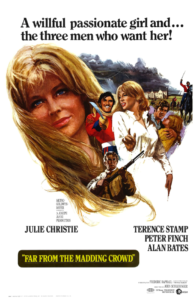
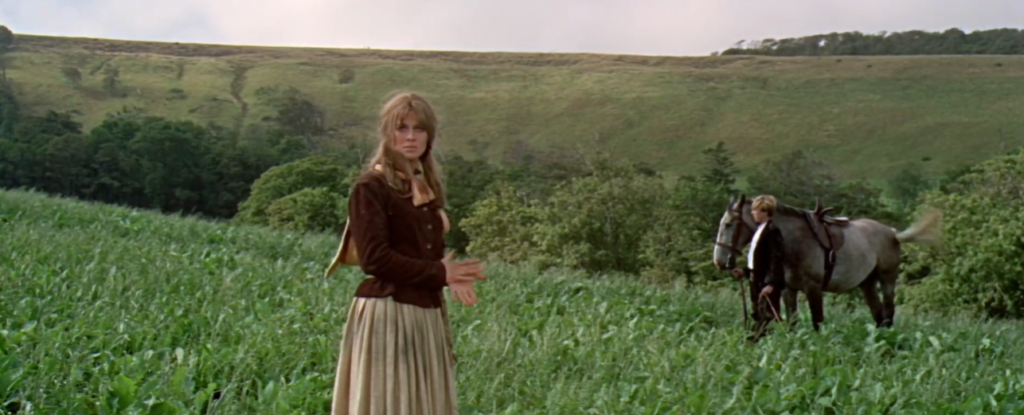
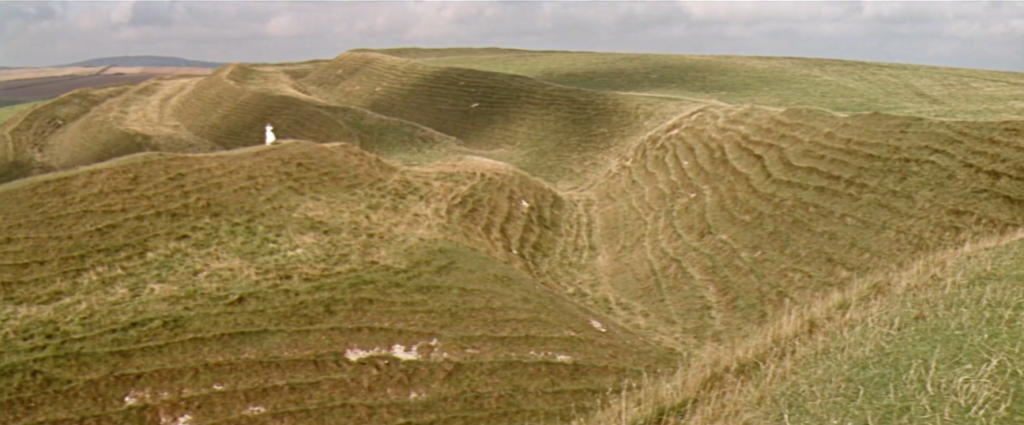
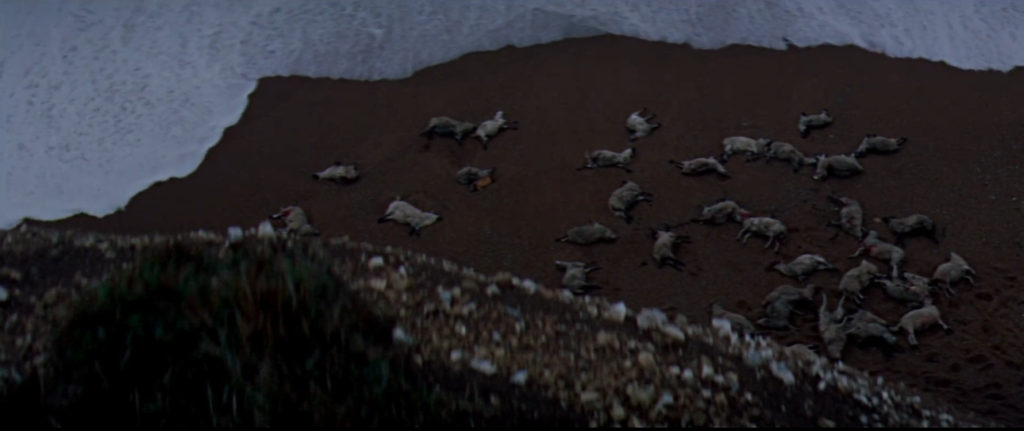
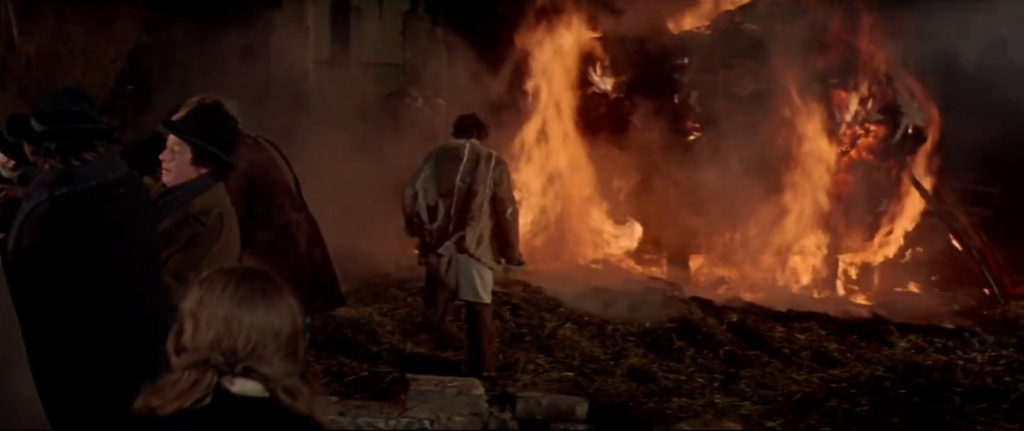
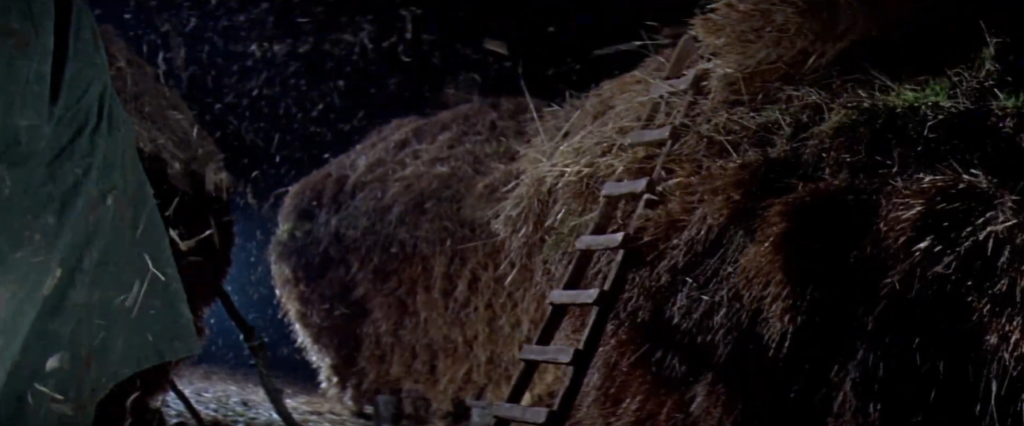
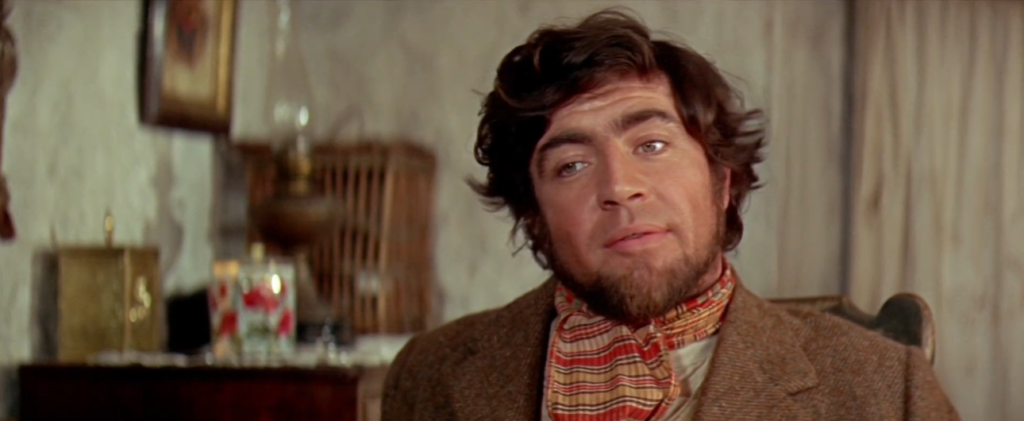
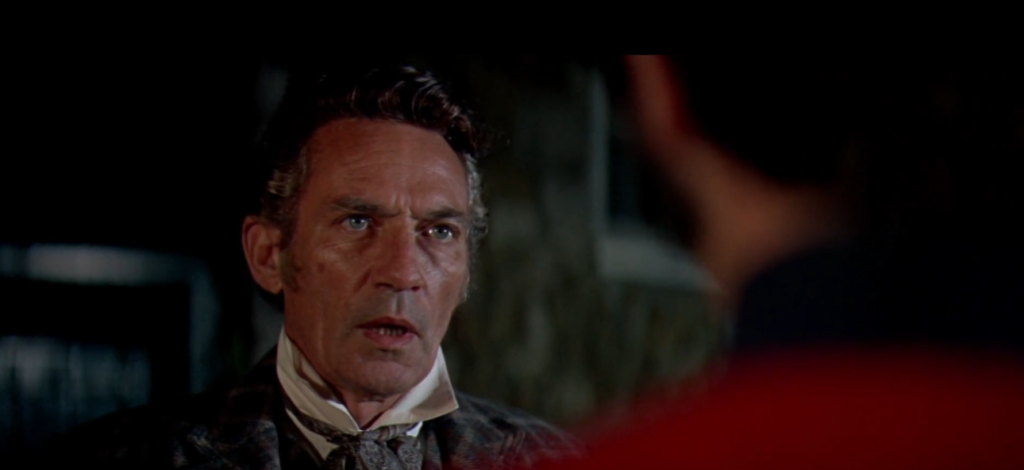
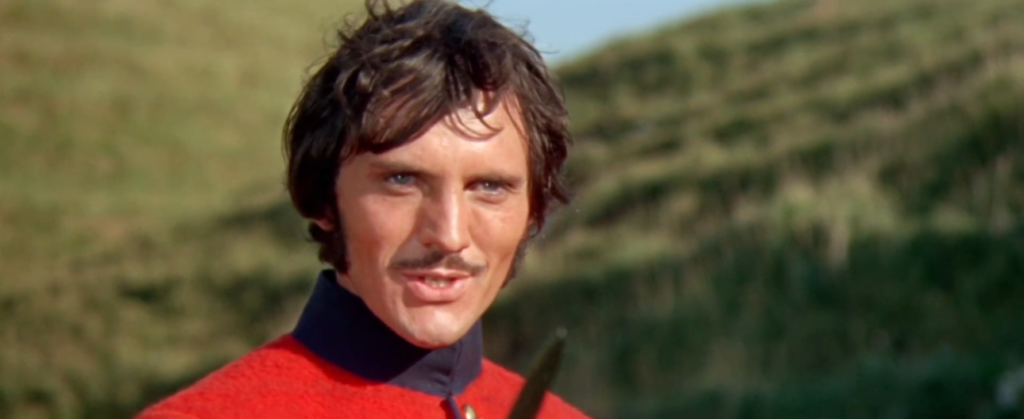
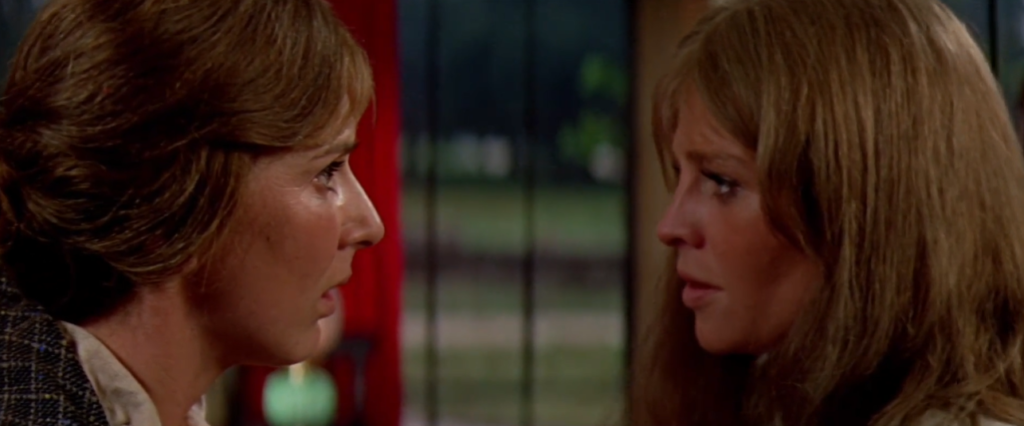
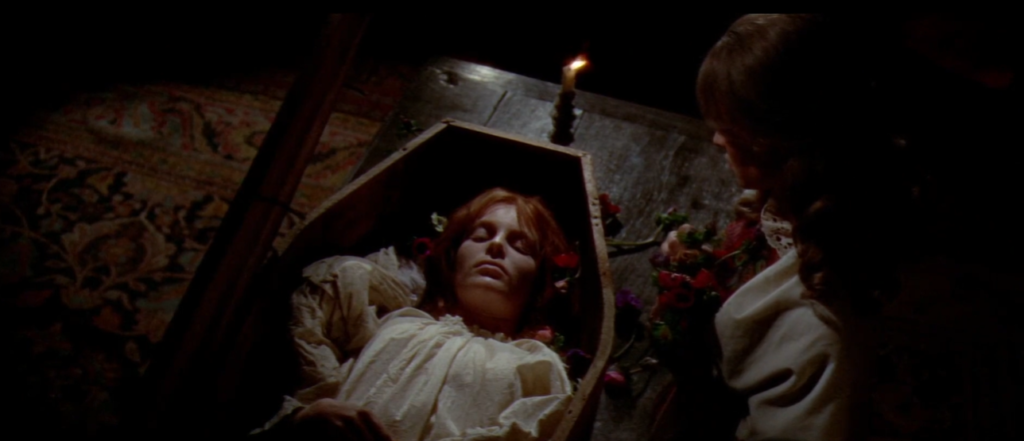
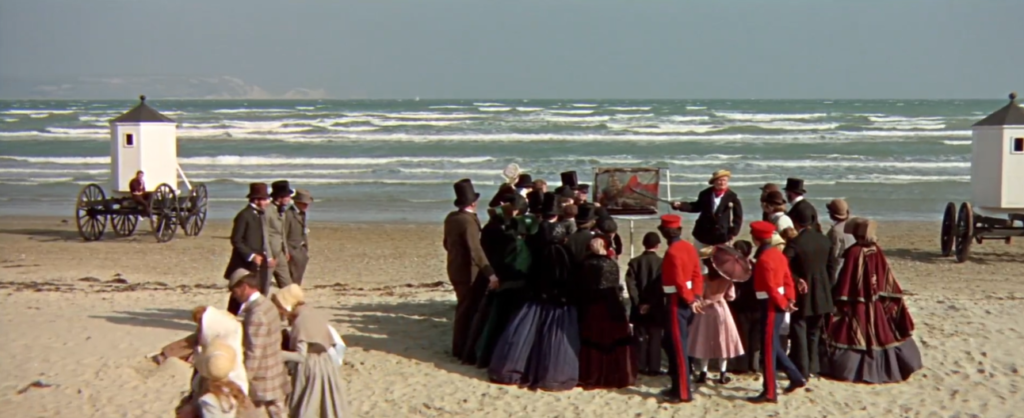
One thought on “Far From the Madding Crowd (1967)”
Rewatch 6/26/22. Not must-see – and fans of the novel may be less-than-enthused – but overall it’s not a bad film. As posted in ‘Film Junkie’ (fb):
“I just didn’t want you thinking I was any man’s property.”
‘Far from the Madding Crowd’ (1967): When I saw the 2015 remake of John Schlesinger’s 1967 version, I hadn’t yet read Thomas Hardy’s novel. In fact, I’ve only just recently read it. I remember liking the new film quite a bit, thinking perhaps it was better than the earlier one (which I hadn’t seen in decades).
I was wrong. Not that the newer film is bad; I still think it’s fine for a number of reasons. But, for one thing, it tries to cram the novel into 2 hours, while the 1967 film is close to 3; so you’re already going to get a lot more story there. (And, all told, you get better acting – primarily because there’s a lot more story to act.)
Hardy gives us a storyline which, in a way, is simplicity itself: 3 men fall separately into the life of a young woman who has recently inherited a farm – which man will she choose? It almost sounds like a sort-of 19th century ‘bodice ripper’ – but, of course, this is Thomas Hardy… and this novel hasn’t the more tempestuous aspects of his ‘Tess of the d’Urbervilles’.
Since the book was so fresh in my mind, rewatching the 1967 film was an unusual experience. What we see on-screen may or may not fall in line with book-based, preconceived notions. While watching, I was keeping an eye and ear out for fidelity: what was cut?, what was adjusted?, what, if anything, was needlessly added? The good news is that the film is surprisingly faithful. Sure, there’s a ton that the film didn’t have time to cover but it’s admirable for the way it carefully streamlines in a way that’s organic and works.
The bad news is… except for what’s salvaged in the dialogue, you lose a whole big bunch of Hardy’s exquisite prose. Needless to say, that’s unfortunate.
As for the acting, these were not going to be easy roles to cast. As Bathsheba, I wasn’t sure at first what Julie Christie was doing but, progressively, she grew into the emotions nicely. As Gabriel Oak, Alan Bates – normally a much more expressive actor – was called on to rein things in (which he does). In parts that get a little less time than afforded in the novel, Terence Stamp (as the mercurial Frank Troy) and Peter Finch (as increasingly troubled William Boldwood) both bring needed subtext.
Director Schlesinger consistently captures and augments a tone that keeps the film from sagging as a love story. So overall the film succeeds. … But the book is still much better.